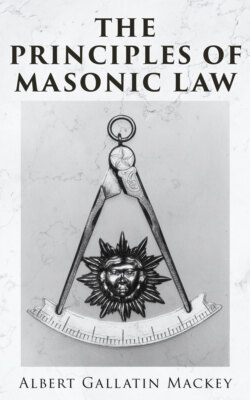Читать книгу The Principles of Masonic Law - Albert Gallatin Mackey - Страница 13
Section II.
The Deputy Grand Master.
ОглавлениеThe office of Deputy Grand Master is one of great dignity, but not of much practical importance, except in case of the absence of the Grand Master, when he assumes all the prerogatives of that officer. Neither is the office, comparatively speaking, of a very ancient date. At the first reorganization of the Grand Lodge in 1717, and for two or three years afterwards, no Deputy was appointed, and it was not until 1721 that the Duke of Montagu conferred the dignity on Dr. Beal. Originally the Deputy was intended to relieve the Grand Master of all the burden and pressure of business, and the 36th of the Regulations, adopted in 1721, states that "a Deputy is said to have been always needful when the Grand Master was nobly born," because it was considered as a derogation from the dignity of a nobleman to enter upon the ordinary business of the craft. Hence we find, among the General Regulations, one which sets forth this principle in the following words:
"The Grand Master should not receive any private intimations of business, concerning Masons and Masonry, but from his Deputy first, except in such cases as his worship can easily judge of; and if the application to the Grand Master be irregular, his worship can order the Grand Wardens, or any other so applying, to wait upon the Deputy, who is immediately to prepare the business, and to lay it orderly before his worship."
The Deputy Grand Master exercises, in the absence of the Grand Master, all the prerogatives and performs all the duties of that officer. But he does so, not by virtue of any new office that he has acquired by such absence, but simply in the name of and as the representative of the Grand Master, from whom alone he derives all his authority. Such is the doctrine sustained in all the precedents recorded in the Book of Constitutions.
In the presence of the Grand Master, the office of Deputy is merely one of honour, without the necessity of performing any duties, and without the power of exercising any prerogatives.
There cannot be more than one Deputy Grand Master in a jurisdiction; so that the appointment of a greater number, as is the case in some of the States, is a manifest innovation on the ancient usages. District Deputy Grand Masters, which officers are also a modern invention of this country, seem to take the place in some degree of the Provincial Grand Masters of England, but they are not invested with the same prerogatives. The office is one of local origin, and its powers and duties are prescribed by the local regulations of the Grand Lodge which may have established it.
